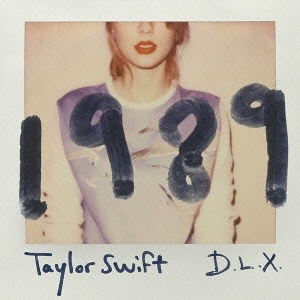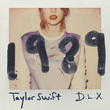Scroll down to read original article in English
音楽ビジネスにおいて、日本はUSとは別世界だ。USでは、CD売上が激減し、小売チェーンはほとんど消滅し、音楽収入はデジタルによるものが主流。しかし日本では、現在もパッケージされた音楽ソフトの売上が78%を占め、その数字は主要な市場においては最も高い。日本の音楽業界は、実際にデジタル音楽を規制しようとしてきたし、それはかなりの効果を上げてきた。iTunesが全世界的には音楽における強力プレイヤーであるにもかかわらず、日本ではニッチな市場しか確保できずにいる。いまや多くの音楽有識者が、近い将来にストリーミングがダウンロードを超えると考えている。ここで、USにおける音楽収入について統計を見てみよう。
・ダウンロード:37%(2013年の40%から減少)
・フィジカル(パッケージ):32%(2013年の35%から減少)
・ストリーミング:27% (2013年の21%から増加)
・その他:4%
デジタル販売とストリーミング配信には数多くのメリットがある。なかでも一番のメリットは、(音楽の)流通が格段に良くなるという点だ。音楽配信においては、アーティストはパソコン、またいまとなってはほとんどどこでも使える携帯電話から、ほぼ全世界に音楽を届け、衝動買いを呼び起こし、オンライン・メディアにリンクし、販売後には比較的早い段階で支払いを受けることができる。そのつもりがあれば、アーティストはレーベルに所属することなく音楽を配信することも可能だ。ただ、売上をより多く手元に残すこともできる代わりに、レーベルが代理でやってくれる多くの重要な仕事もみずから請け負わなければならない。
多くの人が音楽ストリーミングに未来を見い出す一方で、いまだに日本ではこのフォーマットは受け入れられていない。デジタルは確かに顧客にとっては便利だが、音楽業界にとってはどんな影響や問題があるのか?
1. 透明性の欠如
SpotifyやYouTubeといった主要な音楽ストリーミング企業は、しばしば売上の数字を曖昧にし、契約を密室で交わし、不透明な雰囲気で運営している。流通(配信)の面ではデジタルは〈公平な場〉を提供していると言えるかも知れないが、一方で売上の分配方法は不明瞭なままだ。ほとんどの場合、大企業はインディー・レーベルより好条件の契約を取りやすい。ストリーミング会社がどれだけ、いつ、どのようにメジャー・レーベルに支払いをしているかは不明で、レーベルもそれを特に急いでアーティスト側に説明しようとは思っていない。
2. 所有権
iTunesは、〈不可知論的(人間は神の存在を証明も反証もできないと唱える)〉なリテイラーであるということもあって、成功を収めてきた。つまり音楽における〈神〉的なものはなく、すべての音楽を公平に扱おう、というものだ。同社がもっとも気にするのは、顧客が音楽をどう扱うかというところだ。日本では、ソニー・ミュージックエンタテインメントがデジタル音楽市場を懸命に掌握しようとしてきた。しかし、ソニー以外の音楽著作権保有者が〈どうせソニーが(自社で契約している)身内のアーティストの扱いを良くするに決まっている〉と心配するのは当然のことで、その結果、人によってはソニーの運営するメディア(サーヴィス)と契約をすることを、理想的どころか致命的と捉える者もいる。
3. 優位性
配信と露出の面で太刀打ちできることもあって、インディー・レーベルはデジタルの業界を好む傾向がある。しかし、業界の全員が全員〈条件を公平にする〉ことを喜んでいるわけではない。ユニバーサル ミュージックやワーナーミュージック、日本のavexグループやジャニーズ事務所のようなメジャー企業は、総合的に影響力が強いということも手伝って、特定の優位性をすでに獲得している。メジャー・レーベルは膨大なカタログを持ち、宣伝やプロモーションに予算をかけ、ヒット曲を生み出してきた確かな歴史があるので、メディアや広告、小売の業界において特別な扱いを要求することが可能だ。
例えば、もしジャニーズが新人アーティストを売り出すなら、デビュー・シングルからTVの露出、CMタイアップ、小売店でのラック展開が決定するだろう。データベースに新人アーティストを登録してもらうだけで、小売のほうに影響が出てくるというアプローチは、まずもって何の効力も持たない。また、ジャニーズ、avex、ソニーなどの日本の主要な企業は、単に音楽を売っているだけではなく、多数の業界を通してさまざまなところで結び付いており、そのどの業界においても多大な影響力を持っている。また、強力なストリーミング/ダウンロード企業であるSpotify(スウェーデン)やDeezer(フランス)、Pandora(US)や iTunes(US)などはほとんどが外資系企業であり、それらに対して日本企業はさほど影響力を持っていない。
4.〈あなた様の音楽〉VS〈うちの会社(うちのビジネス)〉の構図
音楽業界での大きな関心は、当然ながら〈どのように支払われるのか?〉という点にある。メジャー・レーベルは、過去と同等の料率やマージンで稼ぎたがるし、あわよくばそれ以上を望んでいる。デジタル時代初期には、レーベルのほうであまり上手くコントロールできていなかった。楽曲の使用許諾契約を交わさなければ楽曲が違法に使用されてしまう状況だったし、楽曲使用許諾契約を交わした場合であっても、新規企業が倒産することがしばしばあった。なかにはレコード会社への未払いを抱えたままの倒産もあったぐらいだ。そうかと思えば、デジタル配信企業が上手くその可能性を示唆して高額料金で楽曲を販売し、配信側の創設者が大儲けすることもあったが、それは往々にして取り扱っているレーベルやアーティストの人気に乗じたおかげ。
最近では、メジャー・レーベルがカタログ(自社の管理楽曲)の使用許諾を取りたがる企業に対して求めるのは、次の2点――相当額の前払い金とライセンス権利の一部所有だ。全体的に見ると、レーベルとデジタル配信企業にとっては公平な取引に見える。しかし、アーティストにとってはどうだろう? レーベルは何百万ドルもの前払いを受けているかもしれないが、その支払いはカタログ全体に対するものなので、レーベルはその部分の収入をアーティストに分配する必要があるとは考えない。
また、メジャー・レーベルはSpotifyの株式の一部を所有している。どれくらいを所有しているかは極秘だが、多くの情報源によるとその所有率は約20%とも言われている。最近の調査では、Spotifyの評価額は85億3千万ドル(約1兆円)だという。では、ちょっと考えてみよう。もしSpotifyの大口出資者でもあるゴールドマン・サックスが同評価額(内部関係者によると、100億ドルを目標にしているらしいが……)で買い手をなんとか見つけた場合、1%の所有権でも8,530万ドル(約100億円)の価値があることになる。別の言い方をすれば、メジャー・レーベルは評価額の100億ドル(約1兆1741万円)から合計20億ドル(約2,348億円)をまんまと手に入れる立場になり得るのだ。そして、メジャー・レーベルがその全額を懐にしまい、アーティストには一切分配しないであろうことは、想像に易い。
5. アーティストへのロイヤリティー(使用料)
多くのアーティストがストリーミング・サーヴィスから支払われる使用料に不満を持っている。ストリーミング・サービスからアーティストに支払われる金額は不明だが、Spotifyや同種の企業はそのまま秘密にしておきたいようだ。
それにはいくつか要因がある。まずは、世界各国でロイヤリティーや税を取り決める法律が異なること。レーベルと契約しているアーティストであれば、売上はレーベルに入ることになり、その先の分配についてはアーティスト個別の契約によって決まるという(しかもその契約がかなり古い場合は、デジタルについて網羅されていないこともある)。そしてSpotifyとYouTubeの収入の多くは楽曲の再生中や曲の前後に挟み込んでいる広告によって賄われ、Spotifyには無料と有料のサブスクリプション(定額制配信)サーヴィスがある(一説によると、YouTubeも〈プレミアム〉なサーヴィスを準備中らしい)。
またSpotifyの運用はライヴァルのYouTubeやPandora、SiriusXMのそれとは異なり、各々が独自の冴えない計算方式を利用しているのだが、どこのシステムもどの楽曲が何回再生されたか、一部なのか全曲再生されたのかを計算し、不正を監視するコンピューターによって運営管理されているという仕組みだ。それらのシステムのなかには再生回数が上位の楽曲には高額を支払い、利用が非常に低いアーティストを計算して排除し、いわゆる〈ブラックボックスの収入〉というものを独自の判断で設けているところもある。
ほかには(制度の)抜け穴を利用していたりも。例えば、Pandoraは72年2月15日以前に録音された楽曲にはロイヤリティーを支払っていないのだが、その件で裁判沙汰になっている。結局のところ、誰もSpotifyで仮に100万回再生されたとしても、その支払われる金額について明確な答えを出せないのだが、ある調査では100万回ストリーミングされた場合にアーティストには平均で5,120ドル(約60万円)の支払いが見込まれる、ということがわかったそうだ。
いずれにしても明確にわかっているのは、アーティストにとってはストリーミングの稼ぎなどはCD時代のそれよりも遥かに低く、一方ではダニエル・エク(Spotifyの創設者)とティム・ウェスターグレン(Pandraの創設者)は、何度も長者番付に登場しているということ。ティム・ウェスターグレンに至っては、アーティストへのロイヤリティーの支払いを減らすためのロビー活動や、弁護士の雇用を積極的に行ってきた。テイラー・スウィフトやトム・ヨーク、アデル、コールドプレイなど、多くの著名アーティストはいまもSpotifyまたはその他のサービスへの楽曲を提供していない。
6. いちかばちか
ストリーミングの利点のひとつは、ユーザーにとって便利ということだ。1曲1曲を探すためにレコード・ショップでディグらなくていいし、家のスペースを取らないし、探している曲を見つけるのにコレクションからいちいち引っ張りだして探さずに済む。iTunesとYouTubeでは、探している曲がほぼ何でも見つかる。デジタル・サービスに求められているのは、このレヴェルの利便性だ。しかし、ほんの少数のメジャーなアーティスト、またはメジャー・レーベルの1社でも協力することを拒めば、ユーザーの不満は高まるだろう。
Napsterが日本で成功しなかった大きな理由の一つは、ソニーが楽曲使用を認めなかったからだ。いまやメジャー・レーベルはソニーとワーナー、ユニバーサルの3社のみだが、デジタル・プラットフォーム(サーヴィス)としてはこれら3社にはぜひ生き残ってほしいところだ。日本ではいわゆる〈日本のメジャー・レーベル〉であるavex、ビクター、トイズファクトリーも関係してくる。時にレーベルは、〈所属アーティストがいま儲けるにはどうすればいいのか? VS会社が長期的に健康であるためにはどうすればいいのか?〉というジレンマに陥る。そして、その2つは必ずしも同じ方向ではないものなのだ。
7. 所有
音楽好きのなかには、音楽を所有するのが好きな人もいる。CDやアナログ盤には、アートワーク(ブックレット)や、アーティスト/作曲家/参加ミュージシャンのクレジット、それにライナーノーツ(歌詞入りもある)が付いている。たとえコンピューターが故障、紛失、盗難という目に遭ったとしても、CDは存在し続ける。ディープな音楽マニアであれば、絶版になったレコーディング音源やデジタル・サーヴィスでは入手不可な音源、ブートレグ、デモ音源、ネットで入手可能な素材、その他レアなお宝アイテムなどを持っているかもしれない。
iTunesやその他いくつかのサーヴィスには、そこで入手した楽曲と個人のコレクションをまとめる機能が存在するが、Spotifyにはその機能はない。
8. インターフェイス
オンライン・ユーザーというものは得てして面倒臭がりで注意散漫なもので、とにかく便利さを求めている。どんなデジタル・サーヴィスでも、まずはユーザー・フレンドリーであるべきだ。ソニーのデジタル・サーヴィスが失敗した要因は、往々にしてインターフェイスが使いづらく魅力的ではなかったからだと多数のユーザーが考えている。Appleは素晴らしいインターフェイスを提供していることで高評価を得ているが、先日ローンチした音楽ストリーミング・サーヴィスは見つけづらいし使い方が難しいと多数のユーザーが感じている。
Spotifyのインターフェイスは、ほぼ誰でも操作できる。個人的にはどうでもいい機能もあるが、友だちが聴いている曲を見ることができる機能は特に好きだ。プライヴァシーの侵害に思う人もいるかもしれないし、自分が聴いている音楽が履歴に残って、それが広告のターゲティングに利用されるのを嫌がる人もいるが……。
これまで日本の音楽業界は、なんとか独自のパッケージ・ビジネスを保護してきた。しかし、多くの顧客にとっては、その持ち運びやすさとポケットに膨大なセレクションを持てるという利便性を備えたデジタルの力は、CDを所有するメリットを上回る。その一方で、レーベルは生き残って健康的なビジネスを維持するために奮闘しているし、アーティストは〈新たな音楽配信システムによって(自分の音楽が)虐待されている〉というもっともな心配を抱えている。音楽ストリーミングにとっての課題は、アーティストや著作権保有者、音楽ユーザーがみんなでハッピーになる方法を見つけ出すことだ。
Is there a bright future for music streaming in Japan?
A quick observation by Keith on the powers and issues in the music industry
Japan resides in a different world than the United States in regards to the music business. In the States, CD sales have dropped dramatically, chain record shops have been largely wiped out, and music revenue is primarily from digital sources. Yet Japan remains at 78% physical sales, the highest percentage of any major market. The Japanese music industry has in fact largely tried to hold back digital, and has done a remarkable job of doing it. While iTunes is a major force in music worldwide, in Japan it has been held to a niche market. And amongst music experts now, many consider it a given that music streaming will surpass downloading in the foreseeable future. Take a look at America music income statistics-
Downloads 37% (down from 40% in 2013)
Physical 32% (down from 35% in 2013)
Streaming 27% (up from 21% in 2013)
Other 4%
There are numerous benefits from digital sales and music streaming, the biggest being improved distribution. Thru digital distribution an artist can reach nearly the entire world via their computer and the now nearly ubiquitous cell phone, gather impulse purchases, link to digital media, and get paid relatively soon after sales. If they they so desire, artists can do so without signing to a record label, and thus keep a larger portion of revenue for themselves, although they also take on the burden of various important tasks labels might handle otherwise.
So while many are forecasting that music streaming is the future, Japan has yet to embrace this format. While certainly digital offers convenience to the customer, what does it mean for the music industry?
1. lack of transparency
The major music streaming companies such as Spotify and YouTube operate in a murky atmosphere, where revenue figures are often obscured, and deals are made behind closed doors. While digital offers a “level playing field” in regards to distribution, the way income is split amongst players remains nebulous, and in many cases big companies get better deals than indies. What, when and how streaming companies pay major labels is not clear, and the labels are not in a hurry to explain it to artists.
2. ownership
iTunes has been successful in part because they are an “agnostic” retailer. That is to say they have no “god”, all music is created equal. What they care about most is how their customers react to music. In Japan, Sony has desperately tried to control the digital music market. The problem, naturally, is that any other music rights holder fully expects that Sony would favor Sony artists over their own, making signing up with a Sony owned media somewhere between less than ideal and a showstopper, depending on one’s point of view.
3. advantage
While indie music labels tend to like the digital world, where they can compete more easily in regards to distribution and visibility, not everybody wants a “level playing field”. Major companies such as Universal, and Warner; and Avex and Johnny’s in Japan, have earned certain advantages because of their overall clout. Given that majors have vast catalogs, spend money on advertising and promotion, and have solid histories of making hits, they can demand special attention in the media, the advertising world, and in retail. If Johnny’s has a new artist, they very well may have TV coverage, a CM tie-up, and placement in retail end racks from their debut single.The idea that the retail aspect will change to make that artist something closer to a listing in a database is not nearly as appealing.
Also major Japanese players like Johnny’s, Avex and Sony are not just selling music, they have ties all thru a multitude of industries, and they have leverage in all of them. Most the significant streaming and download companies are foreign owned- Spotify (Sweden), Deezer (France), Pandora (USA) and iTunes (USA), and Japanese companies have less leverage with these companies
4. your music vs. our company
A major concern for all in the industry, naturally, is how they are getting paid. For the major labels, they would like to earn at rates similar to what they have historically, or improve their position if possible. In early digital years the record labels did not manage very well. They made licensing agreements, or saw their music pirated. When they made licensing agreements, they often saw start-up companies fail, sometimes with outstanding balances owed to the record companies. Or they saw digital companies show potential, and sell for large amounts, making the owners of the digital company founders rich, largely on the back of the labels and the artists they represent.
So in more recent times, the major labels usually want two things from companies that want to license their catalogs- a substantial advance payment and partial ownership of the licensee. This might seem fair, all things considered, for the label/ digital distributor axis, but what about for the artists? The label may received millions of dollars in advance payments, but since the payment is for the overall catalog, the labels do not feel in necessary to share this income with the artists.
And the major labels own part of Spotify. How much they own is a closely guarded secret, but numerous sources say the majors own about 20% of Spotify. And the recent round of investment values Spotify at $8.53 BILLION. So let’s take a look at that. If Goldman Sachs, also a major investor in Spotify, managed to find a buyer at that valuation (insiders say they are targeting $10 billion), a one percent ownership position would be worth $85,300,000. Or expressed another way, the major labels might be in a position to pocket a total of $2 BILLION on a $10 billion valuation, and it is expected they will pocket all of it and share zero with artists.
5. artist royalties
Many artists are unhappy with the income they receive from streaming services. How much artists get paid by streaming services is a complicated question, and it seems Spotify and the like would like to keep it that way.
Here are a few of the factors- every country has different laws dictating royalties and taxes, if an artist is signed to a label the income goes to the label and is subject to the label- artist agreement (and if older contracts digital may or may not be covered clearly), Spotify and YouTube make a lot of money from advertising in between and during while music is playing, Spotify has both free and paid subscriptions (and YouTube is said to be working on a “premium” platform), Spotify operates one way and their rivals such as YouTube, Pandora and SiriusXM slightly different and all use their own obtuse formulas, each system is operated and monitored by computers who calculate how many times a track was played and whether it was partially or fully played and be on the lookout for “gaming” of the systems in place. Also some systems pay higher to top played tracks, cast out calculations for artists with very low use, and have some discretion over so called “black box” income.
And there are loopholes, and for example Pandora is not paying royalties on music recorded before Feb. 15, 1972, and they are being taken to court for it. So nobody can give you a clear answer to how much one might get paid for a million plays on Spotify, but one research came up with that on average an artist might expect $5,120 for a million streams.
Here is what we do know clearly, artists are making far less from streaming than they made in the CD era, and Daniel Ek (Spotify founder) and Tim Westgren (Pandora founder) are millionaires many times over. And meanwhile Westgren is actively lobbying and lawyering towards paying lower royalties to artists. A number of major artists such as Taylor Swift, Thom Yorke, Adele and Coldplay are keeping their music off of Spotify and/or other services.
6. all or nothing
Part of the beauty of streaming is that it is convenient for users You don’t need to dig thru record stores finding each and every song, or take up space in your dwelling, or physically search thru your collection to find the song you are looking for. On iTunes and YouTube nearly anything you might want is there. This is the level of convenience expected from digital devices. However if just a handful of major artists or a single major label decides not to cooperate, it can result in high customer dissatisfaction.
Napster failed in Japan largely because Sony refused to make their music available. There are only three major record labels now- Sony, Warner and Universal, and so any digital platform pretty much has to have all three to survive. In Japan “Japanese majors” such as Avex, Victor and Toy’s Factory also come into play. And sometimes the labels are faced with the dilemma of -what is good for making money for our artists now vs. what is good for the long-time health of our company, and they are not always the same path.
7. ownership
Some music fans like to own their music. CD’s and vinyl have artwork, artist and songwriter and side player credits & liner notes (sometimes with lyrics). CD’s still exist even if your computer fails, is lost or stolen. For deep music maniacs they may have out-of-print recordings, stuff not available on digital platforms, bootlegs, demos, material available free on-line and other rare but treasured items. iTunes and some other services make room to integrate your private collection with their offering, but Spotify does not.
8. interface
On-line users can be lazy and easily distracted, they demand convenience. Anybody with a digital offering needs to be user friendly. Many people think that Sony’s digital offerings have failed to a significant degree because the interfaces were so awkward and clunky. While Apple has a reputation for offering brilliant interfaces, many have found their recently launched music streaming service both hard to find and difficult to use. Spotify’s interface is pretty near idiot-proof.
There are some aspects of it I don’t care for, but I esp.do like being able to see what friends are playing. But for some this might be seen as an invasion of privacy, and indeed some dislike that what music they play is being tracked and used to target them with advertising.
So far the Japanese music industry has managed to protect their physical business, but for many customers the convenience of portability and power of having a vast selection in their pocket outweighs the benefits of owning a CD. At the same time record labels are fighting to survive and maintain healthy businesses, and artists have legitimate concerns that they are getting abused by the new digital distribution systems. The challenge for music streaming is to find a way that makes artists, copyright holders and music consumers all happy.



























